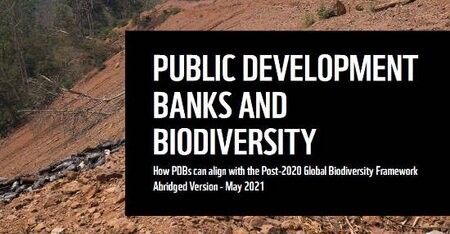PS6 & due diligence
For an investor or project developer, ensuring a project is on track to align with lender requirements, such as IFC Performance Standard 6, is central to de-risking projects. This ensures projects can avoid the significant delays and cost overruns typically associated with poorly anticipated requirements for managing biodiversity-related risks and impacts.
Clarity in complex development projects
As Lender’s Advisor or Independent Environmental and Social Consultant, we offer technical and strategic advice on biodiversity issues and risk factors for greenfield developments or the refinancing of existing assets around the world.
With many years’ experience conducting due diligence for investment banks, development finance and private equity, our clients trust us for independent advice on some of the world’s most sensitive projects in energy, infrastructure, mining, and agribusiness. We advise clients on the financing of nature projects, including conservation projects, offsets, REDD+, and nature-based solutions.
We have worked with leading multilateral financial institutions such as IFC and EBRD to develop their environmental safeguards (IFC PS6 2012, EBRD PR6) and maintain extensive practical experience of the implementation of World Bank Environmental and Social Standard 6, Equator Principles, OECD Common Approaches, ADB Safeguards, and IFC Environmental, Health, and Safety (EHS) Guidelines.
Services we provide to the finance sector include:
- Investment due diligence. We assess whether a project is on track to meet lender standards. Depending on the need, this can range from a rapid-turnaround “red flag” review, through desktop risk-screening and in-depth assessments including on-site evaluations. We combine specialist biodiversity data with project information to advise investors on the potential biodiversity risks and whether they are being adequately managed.
- Lender's Advisor. As a project moves towards an investment decision following initial due diligence, we work with lenders to identify key strategic risks and define appropriate mitigation measures for a project’s Environmental and Social Action Plan.
- 'Fit-for-finance' assessment ahead of the financing process. We work with project companies, infrastructure funds and corporates to verify and ensure projects are aligned with international financing and regulatory requirements, thereby building confidence in the bankability of their projects.
- Strategic advisory. Our guidance helps finance providers understand evolving expectations in terms of biodiversity ambition, standards, disclosure and reporting, enabling the development of biodiversity policies and strategies that are appropriate to their business context. We take a risk- and opportunity-based approach to biodiversity management, supporting finance providers with operational procedures and implementation of due diligence and net gain frameworks.
- Social and specialist integration. Our focus is on biodiversity, but we regularly work in partnership with social and other specialists. We convene teams from a small number of trusted organisations and individuals to offer a comprehensive due diligence and advisory service.



